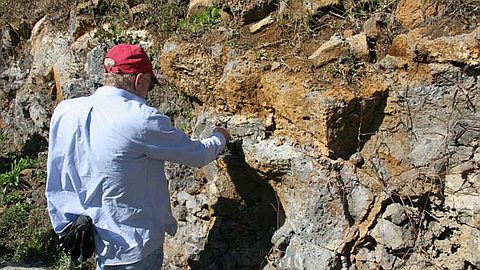More Than 100 Nobel Laureates Call Out Greenpeace For Anti-GMO Obstruction In Developing World

“We urge Greenpeace and its supporters to re-examine the experience of farmers and consumers worldwide with crops and foods improved through biotechnology, recognize the findings of authoritative scientific bodies and regulatory agencies, and abandon their campaign against ‘GMOs’ in general and Golden Rice in particular,” it says.
Golden Rice was designed as a solution to vitamin A deficiency, which some 250 million people worldwide suffer from, including 40 percent of the children under 5 in the developing world, according to WHO statistics cited by the scientists.
“Based on UNICEF statistics, a total of one to two million preventable deaths occur annually as a result of VAD, because it compromises the immune system, putting babies and children at great risk. VAD itself is the leading cause of childhood blindness globally affecting 250,000 – 500,000 children each year. Half die within 12 months of losing their eyesight.”
Biotech scientists have developed (and since improved) lines of rice with two plant genes so that it makes beta-carotene in the grain, the pre-cursor of vitamin A. This is called Golden Rice. The goal from the beginning was to offer this rice for free to poor farmers. They are too resource-limited and too remote to help through rich world options like supplements or fresh produce.
From the beginning, this offer has been vigorously opposed by Greenpeace and other NGOs. Their campaigns have often included the use of outright lies and false rumors. This dogmatic and extreme response on the part of Greenpeace makes no sense for an organization that claims to align with science when it comes to other topics such as climate change.
In the list of 107 Nobel Laureate signatories I noticed Paul Berg, one of the very first scientists to pioneer “genetic engineering” in the early 1970s. I had the privilege to hear about this exciting new science from Berg in 1976 when he taught that part of a biochemistry class I took at Stanford. Berg was also a key organizer of the 1975 Asilomar Conference at which the nascent biotechnology research community voluntarily placed precautionary restrictions on their experiments until more was understood about this new frontier of biology. That same sort of precaution was central to the launch of biotechnology in crops in 1996 as it very intentionally involved regulatory review to head-off exactly the negative scenarios that Greenpeace continuously claims to have been ignored.
Berg and his colleagues around the world have been able to watch the amazing applications of genetic engineering technology which has revolutionized medicine, diagnostics, bio-industrial processes, microbiomes and our understanding of the entire biological world around us.
I recently attended two BIO conferences where the state-of-the-art in biotechnology is on full display. The progress I witnessed there was truly amazing and encouraging. However, there is a bitter-sweet dimension for me as an agricultural scientist. The potential applications of genetic engineering for agriculture have been severely limited in comparison to what has happened in medical and industrial applications. Nowhere is this more painfully true than with regard to possible solutions for the world’s poorest farmers. Greenpeace is not alone in that blockage, but it has been a lead player.
I’ve been watching the plant/crop aspects of genetic engineering as sort of an “accidental tourist” for more than 40 years. My exposure to the field has been in terms of knowing many individual scientists, regulators, business people, and farmer-customers who have been involved. Most of the time It has been my privilege to share in their excitement and to appreciate their creativity and positive intentions. A couple of weeks ago I met one of the scientists who helped with the Golden Rice project. It was sad to hear how frustrating and discouraging it has been for him to to see something with so much potential for good being irrationally and inhumanely blocked by players like Greenpeace.
Will Greenpeace respond to this extraordinary call from such a distinguished group of scientists? I have no idea because I am completely unable to understand the logic or motivation behind their extreme position. All I can do is hope that they will listen.





